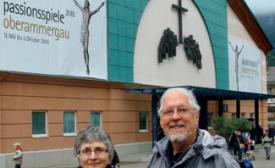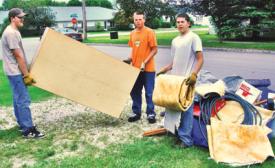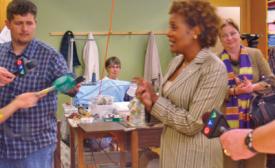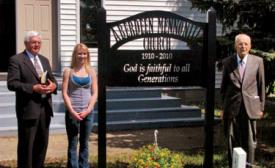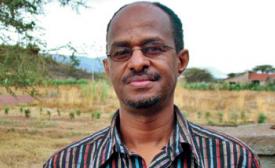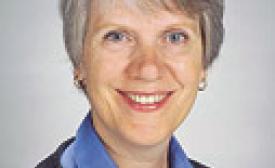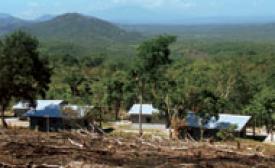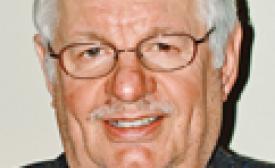Volume 14, Number 13
A Jewish Jesus in occupied territory
In 1633, the people of Oberammergau in Bavaria (now part of Germany) pleaded with God to save them from extinction. Not only had the Black Death—or plague—taken its toll in the village and surrounding area, but the Thirty Years War across Europe between Protestants and Roman Catholics had ended in deprivation and exhaustion for all.
The decline and fall of a legend
As a boy, I couldn’t get enough of the Robin Hood legends. I read every book I could find on the subject and I loved the 1938 Errol Flynn film. While it’s true that Robin dispatched the Sheriff of Nottingham’s expendable soldiers without a second thought, these light-hearted tales about Robin and his merry men conveyed a sense of harmless innocent adventure mixed with justice for the poor.
MDS responds quickly to southern Manitoba flooding
On May 29, 10 centimetres of rain fell in an hour on the small border town of Emerson. By the end of the day, more than 15 cm had come down. With the ground already saturated, the rain had nowhere to go, flooding most of the basements in town.
“It varied from home to home, but some had as much as [1 to 1.2 metres] in their basements,” said Jeanette Sabourin, town administrator.
Facing ‘a new enemy’
Maurice Phillips, a commercial fisher of Plaquemines Parish, La., took a group of disaster management leaders out on a small boat to “see the oil” on June 7. This is the best way to witness the destruction of the British Petroleum (BP) oil spill, members of Grand Bayou told Paul Unruh of Mennonite Disaster Service (MDS). Unruh led the group as part of a listening tour.
An ‘eloquent’ visitor
Work at the Mennonite Central Committee (MCC) Ontario office and warehouse in Kitchener came to a halt on June 14, when Michaëlle Jean, the Governor-General of Canada, dropped in for a visit.
‘To be in harmony with all people’
In the town of Aberdeen, Sask., population 600, a small but committed group of Mennonites that call this place home gathered together in early June to celebrate 100 years of witness to the community.
No longer ‘sinful or strange’ to each other
A century-and-a-half after the Mennonite Brethren (MB) Church and General Conference (GC) Mennonite Church divided, Canadian Mennonite University (CMU) held a “Celebrating 150 Years” event on June 5, in an effort to listen to the stories of each denomination and learn from them.
‘Call to me and I will answer you’
Leaving home to attend university exposed Frew Zinna to new attitudes and lifestyles that pulled him away from his family’s legacy of faith, but the words of Jeremiah 33:3 called him back to Christ and into ministry.
Getting a perspective with numbers
For discussion
1. Dick Benner writes that, “in Latino culture, time is not a commodity, but a gift to be enjoyed.” What experiences have you had with cultures that have a similar attitude towards time? Why do North Americans have trouble embracing this relaxed attitude about time? What is the relationship between the North American view of success and its view of time?
What is Canadian Peacemakers International?
With an office in Edmonton, Alta., Dave Hubert, who founded Canadian Peacemakers International (CPI) in 1997 following a 23-year career in post-secondary education (including eight years as college president) and 10 years with Mennonite Central Committee (MCC), is working with several partners in addressing poverty issues in Third World countries, particularly in Central America.
‘I never thought I’d be a landowner’
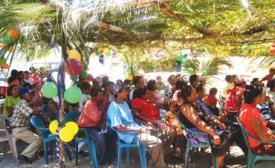
Members of the 11 families, gathered under a palm-laden, balloon-decorated pavilion, listen intently during the June 5 ceremonies giving them possession of their new homes.
Horacio Cardenes, 36, grins from ear to ear. His is one of 11 peasant families in a rural hillside village in northern Honduras that has just taken title to their first real house—a cement-block, two-bedroom abode that is, in his eyes, a mansion compared to what they now live in.
Lessons from the Third World
In our presumed sophistication as First World residents, we often consider ourselves a gift to the rest of the planet. By comparison, aren’t we far more educated, resourceful, wealthy and technologically advanced?

